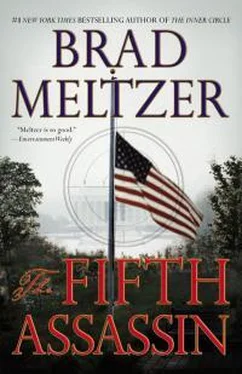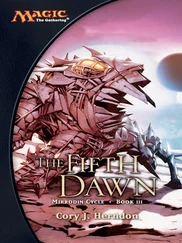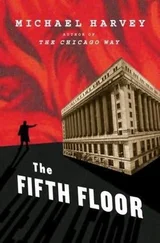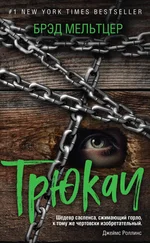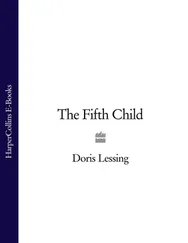Nico didn’t like that. With his hearing, he wasn’t used to such intense silence. But at least now he knew where he was. Whatever room they put him in, it was soundproof.
Still, just to be safe, Nico kept his eyes shut.
“ I think you’re clear ,” the dead First Lady finally said.
Squinting carefully, Nico looked around. The room was narrow but tastefully painted in the same calming celadon green color as the check-in area that they entered through yesterday. He was on a thin blue mattress that was on the floor. There was no furniture, no TV, nothing he could hurt himself with. On his right, one of the walls—the one with the door on it—was made of solid, thick glass that looked out into an empty hallway and allowed the doctors and nurses to look in. And for Nico to look out.
Decades ago, they’d have put Nico in a straitjacket and tossed him in a rubber room. But in today’s modern institutions, restraints were frowned upon and rubber rooms didn’t exist anymore. Now they were called “Seclusion Rooms” or “Quiet Rooms”—places where the patients could find their own calm and “help themselves.”
“ So the drugs they gave you… They didn’t work? ” the First Lady asked.
Nico shook his head, slowly sitting up. His fingers were stiff and his body was sore from the fighting. As he peered into the empty hallway, no one was there. He wasn’t surprised.
For weeks now, he knew someone had to be looking out for him. The Knight had shown up once, months ago. But after that, he was too smart to return to St. Elizabeths. Indeed, as Nico thought about it, with all the messages that the Knight was able to send—with the invisible ink playing cards that had been tucked into the old books—those messages didn’t just deliver themselves. Someone inside the hospital was helping the Knight communicate with Nico. Someone was on his side.
“ You think that’s who gave you the injection, don’t you? ” the First Lady asked.
“The Knight told me… He told me he would provide—that we wouldn’t be alone,” Nico said as he replayed the past few days and thought about the one person who always seemed to be showing up, again and again.
“ I know who you’re thinking about ,” the First Lady said. “ But you still need to be careful. ”
Nico was being careful. That’s why he was staring at the back corner of the room, where a surveillance camera sat inside an octagonal-shaped metal wedge with scratchproof glass. No question, the camera watched every part of the room. It watched Nico. But to Nico’s surprise, unlike every other camera in the new building, the little red light on top of the camera wasn’t glowing.
“ Is it possible to shut off just one camera? ” the First Lady asked.
“The Knight said he’d take care of us. That he’d provide,” Nico said, slowly climbing to his feet. He was still wary—but he was getting excited. Everything the Knight had said… it was all coming true. Destiny.
Pressing his face and fingertips against the glass, Nico checked the dark hallway. The lights were off, and there were no nurses. No orderlies. No one.
“Looks like God’s looking out for you, Nico.”
“Not just God,” Nico said as he reached for the door. “The Knight looks out for us too. The Knight provides .”
With a tug on the doorknob, Nico waited for the standard metal tunk that came with a deadbolt. Instead, the door swung toward him, not making a sound.
Unlocked.
For an instant, Nico hesitated. But not for long. The Knight was definitely looking out for him. Plus, someone else was too.
Stepping out into the hallway, Nico was on his way.
90
So who do you think’s helping him?” Palmiotti asks, glancing over at me from the passenger seat.
“Helping Nico? Not sure,” I reply, holding tight to the steering wheel.
“Actually, I wasn’t talking about Nico. I was—” Palmiotti stops himself. “You think this goes back to Nico ?”
I go silent, my eyes locked on the small two-lane road known as MD 77. For most of the first hour, the game has been the same—he brings up small details, trying to pump me for information. But he’s not the only one playing it.
“Who were you talking about then? You think the President’s getting help?” I ask.
Now Palmiotti’s the one who’s silent. On both sides of us, the suburban strip plazas that lined I-270 have given way to huge swaths of snowed-over northern Maryland farmland and the rising Catoctin Mountain that’s directly ahead. There’s no one around—no one anywhere—but Palmiotti’s still focused on our rearview mirror.
“How can someone be helping the President?” I add. “I thought Wallace was the victim here.”
“He is the victim. But you have to understand, when you’re President—just to communicate with the outside world… That doesn’t happen without help.”
“What kind of help?”
“Help from someone close.”
“Like your old high school friend who happens to be the White House doctor.”
“Or a trusted Secret Service agent,” Palmiotti explains. “When we get there, that’s who we need to be looking for. A.J. Ennis. Find him and you’ll find the President.”
“So why not just call A.J?”
Palmiotti turns from the rearview and shoots me a look. “I told you, Beecher. My direct line isn’t as direct as it used to be.” He pauses for a moment, like he wants to say something else, but it never comes. I see the loss in his eyes. All it does is make me think of Tot and everything I owe him, everything he’s done. Grace said he picked me to help rebuild the Culper Ring… to help him do what’s right. For that alone, it’s enough to keep me going.
“So this guy A.J. That’s who Wallace replaced you with?”
Palmiotti doesn’t answer.
“You think A.J. might be a part of this?” I add. “I mean, if he is that close to Wallace, he’d be in the perfect spot to take a shot.”
Before he can answer, I spot a yellow, diamond-shaped highway sign: Watch for Ice on Bridge .
It’s the only warning I get. My chest flattens, pressing against my organs. Up ahead, there’s no missing it: the small two-lane arched bridge that runs across a shallow ravine.
The metal bridge is old—bits of ice shine on the rusted archway—but it looks safe as can be. Still, at just the sight of it, my fists tighten around the steering wheel.
“Beecher, you okay?” Palmiotti asks.
I nod and hold my breath.
I don’t like bridges. My father died on a bridge. But as we get closer and the tires thump across its threshold…
I’m not sure that that version of my father’s death is true anymore.
Next to me, Palmiotti says something about President Wallace and how much he doesn’t trust A.J.
I barely hear it.
Indeed, as the car’s tires choom-choom-choom across the bridge’s metal grated roadbed, the only thing going through my head is the letter from last night…
The letter Clementine showed me. My father’s suicide note.
I fight hard to stare straight ahead—but in my peripheral vision, I still see the snow-covered rocks that lead down toward the frozen stream below us.
For as long as I can remember, I was told my father died on a bridge just like this one. Small bridge. Small town. Small death, so easily forgotten.
But like any son, of course I never forgot. For decades now, I’ve pictured every version of my father’s death: his car plummeting because of an oncoming truck, his car plummeting because he had a heart attack, his car plummeting because he swerved to save a special old dog. I’ve seen my father die in every different permutation. But to read that note—to see his handwriting—and especially to see the date on that letter: one week after he supposedly perished…
Читать дальше
